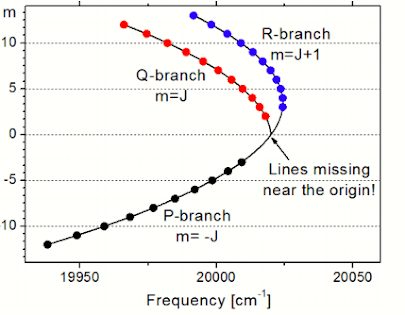Plasma and Debye Shielding
Plasma
Generally,
we know three different states of matter i.e. solid, liquid and gas. But there
is another fourth states of matter called plasma. Plasma is formed when the
third state of matter i.e. gas is ionized by applying some energy(Heat energy
at high temperature or electromagnetic field) to it. Every ionized gas will not
be the plasma. To become a plasma, ionized gas must obey the two properties,
They are quasi neutrality behavior and the collective behavior.
If
the plasma density is very high it can block radiations like x-ray, Gamma ray
etc.
Quasi
neutrality behavior:
When
the number of the positive charge density (ions) is equal to the negative charge
density (electrons) then that behavior is called the Quasi neutrality behavior.
Positive charge density (ions)is denoted by ni
and the negative charge density
(electrons ) is denoted by ne.
Collective
behavior:
Collective
behavior in plasma means, each charge particle in plasma interact with other
particles. so, to encounter the external stimulus, there is always response of
many charge particles.
Debye
Shielding :
Plasma has the ability to shield out the electric
potential applied to it. When we apply the electric field to a single charge
(positive charge or negative charge), that single charge attracts the opposite
charge particle and makes a cloud(looks like a shield) of opposite charge
particle around it, which is called the Debye shielding. Debye shielding is as
shown in figure below. The length as indicated in the figure by red arrow line
is known as the Debye length. Out of this Debye length there is no effect of
the single charge. The shielding of the electrostatic field is a result of the
collective behavior of the plasma particle.
![]()
![]()
Debye length is denoted by ![]() d.
d.
Here, to make the perfect shield thermal motion must be zero. If
there is thermal motion then the charge particles around the single charge
particle gets the kinetic energy and leaves the shield and then the shield is no
more stronger. Thus, for the strong and perfect shielding thermal motion must
be zero.
To find the Debye shielding formula we must have the two
assumptions:
1. The
temperature must be finite
2. The
electron charge density i.e. ne must be equal to the ion charge
density i.e. ni
The Debye length can be written as,
Where, Ꜫ0 =
permittivity of free space
k = Boltzmann constant
e = Charge of electron
From this relation we can see that the
Debye length is inversely proportional to the square root of the number of
electrons.
The number of electrons (Nd) inside a
Debye sphere is given by
Nd = 4/3 π λd3n
Some
Cases:
![]() d<<L i.e. The Debye length must be lesser than the
length of the container.
d<<L i.e. The Debye length must be lesser than the
length of the container.
Nd>1
i.e The number of the particle inside the container must be greater than one
because for the interaction and collision the particle must be equal to greater
than one.




Comments
Post a Comment